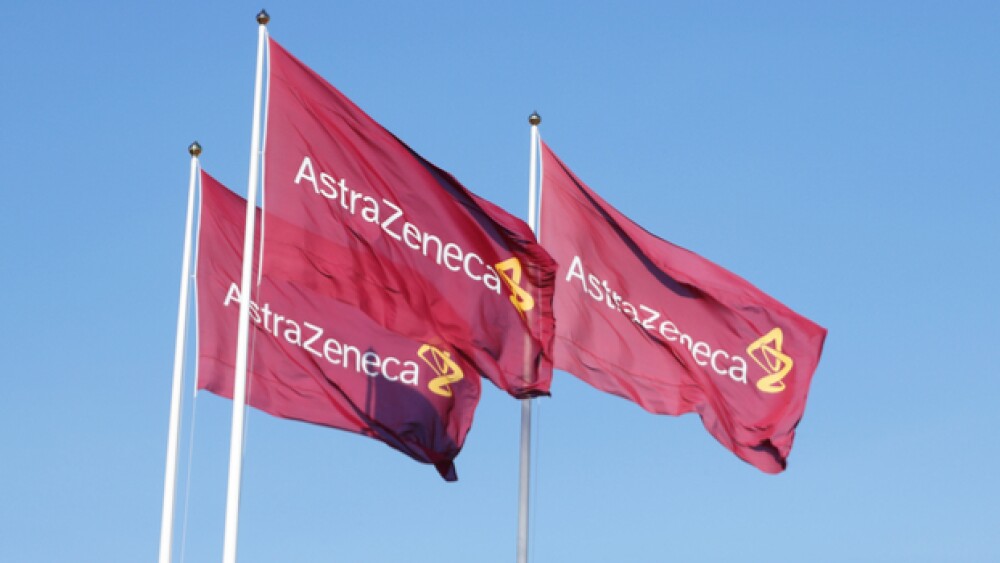In addition to various deal news, AstraZeneca had clinical trial news today as well.
Roland Magnusson / Shutterstock
In addition to various deal news, AstraZeneca had clinical trial news today as well.
First, the company announced that its Brilinta (ticagrelor) hit the primary endpoint in the Phase III THALES trial in stroke. The study showed that 90mg of Brilinta twice a day and taken with aspirin for 30 days, provided a statistically significant and clinically meaningful decrease in the risk of stroke and death compared to aspirin alone. The trial was run in more than 11,000 patients who had a minor acute ischemic stroke or high-risk transient ischemic attack (TIA) in 24 hours before the beginning of treatment.
“Results of the Phase III THALES trial showed Brilinta, in combination with aspirin, improved outcomes in patients who had experienced a minor acute ischemic stroke or high-risk transient ischemic attack,” said Mene Pangalos, executive vice president, BioPharmaceuticals R&D. “We look forward to sharing the detailed result with health authorities.”
Brilinta is an oral, reversible, direct-acting P2Y12 receptor antagonist that inhibits platelet activation. With aspirin, it significantly decreases the risk of major adverse cardiovascular events, such as myocardial infarction, stroke or cardiovascular death.
AstraZeneca also announced that its Phase II DESTINY-Gastric-1 trial of it and Daiichi Sankyo’s Enhertu (trastuzumab deruxtecan) met the primary endpoint and key secondary endpoints in patients with HER2-positive unresectable or metastatic gastric or gastroesophageal junction cancer that had progressed after two or more treatments including trastuzumab and chemotherapy.
The primary endpoint was an improvement in objective response rate (ORR). It also hit a key secondary endpoint, statistically significant and clinically meaningful improvement in overall survival (OS).
“Gastric cancer is usually diagnosed in the advanced stage and patients face markedly high mortality rates, making the need for new therapies especially urgent,” said Jose Baselga, executive vice president, oncology R&D, for AstraZeneca. “Given the previous results seen in our HER2-positive development program and now in HER2-positive metastatic gastric cancer, we believe this antibody drug conjugate has the potential to redefine the treatment of patients with HER2-expressing cancers.”
Enhertu (fam-trastuzumab deruxtecan-nxki in the U.S.; trastuzumab deruxtecan outside the U.S.), is the lead product in the antibody drug conjugate (ADC) franchise of the Daiichi Sankyo Enterprise and the most advanced program in AstraZeneca’s ADC platform. ADCs are an antibody directed to a specific cancer antigen linked to a chemotherapy agent via a molecular linker. The idea is that the antibody delivers the chemotherapy toxin directly to the cancer cells with fewer systemic side effects.
As mentioned above, AstraZeneca has also been involved in deal news. They announced today plans to sell global commercial rights to Inderal (propranolol), Tenormin (atenolol), Tenoretic (atenolol, chlorthalidone fixed-dose combinate), Zestrial (lilsinopril) and Zestoretic (lisinopril, hydrochlorothiazide fixed-dose combination) to Atnas Pharma, excluding the rights in the U.S. and India, which were already divested, and in Japan, which AstraZeneca will hold on to. They drugs are mostly used to treat hypertension.
Also, AstraZeneca is regaining the global rights to brazikumab, a monoclonal antibody that targets IL23. The rights were licensed to Allergan as the results of Allergan divesting certain rights as part of its merger with AbbVie. AstraZeneca and Allergan are terminating their existing licensing deal and all rights to brazikumab are reverting to AstraZeneca.
“We’re pleased to bring brazikumab back into the AstraZeneca pipeline,” Pangalos said. “With our expanding presence in immunology, there is an opportunity to address a significant unmet need in inflammatory bowel diseases where the majority of patients are unable to achieve clinical remission with current treatment options.”





